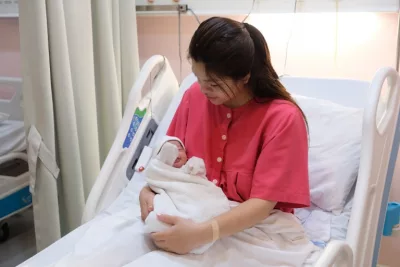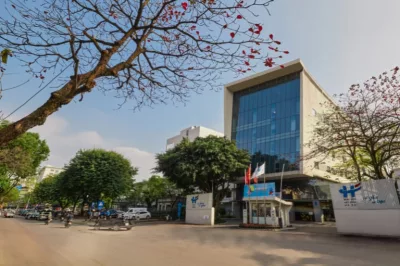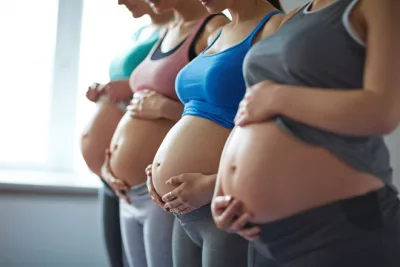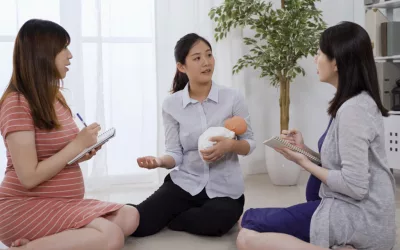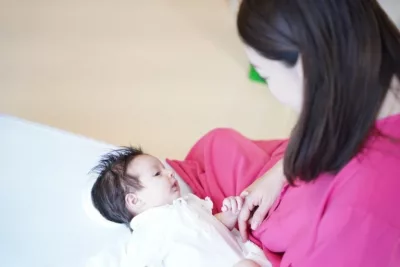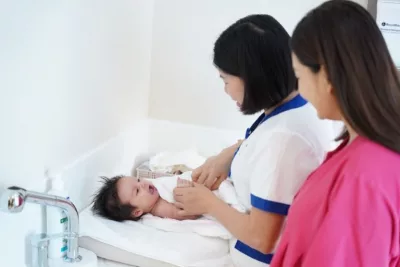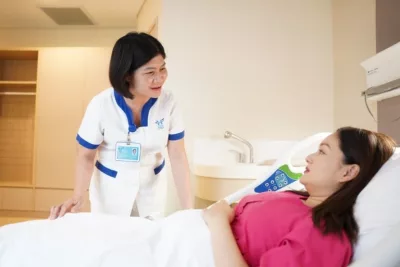What to Do If You Have Hemorrhoids After Giving Birth? 10 Ways to Manage It To help improve this condition and relieve symptoms, here are some important things to do if you experience postpartum hemorrhoids: Do postpartum hemorrhoids heal on their own?
What to Do If You Have Hemorrhoids After Giving Birth? 10 Ways to Manage It
To help improve this condition and relieve symptoms, here are some important things to do if you experience postpartum hemorrhoids:
- Consult a doctor If you notice symptoms such as burning, bleeding, or a heavy and swollen sensation in the anal area, see a doctor for an accurate diagnosis. Hemorrhoids vary in severity, and treatments differ accordingly. Your doctor may recommend medications, at-home remedies, or surgery in more severe cases. Seeking medical advice is essential.
- Apply ice packs A simple and effective way to reduce swelling and discomfort is to apply an ice pack. Wrap a cold pack in a soft towel and place it gently on the affected area several times a day. Ice can reduce redness and inflammation and relieve pain. Do not apply ice directly to the skin to avoid frostbite.
- Soak in warm water Soaking the anal area in warm water is another useful method to ease discomfort. Use a sitz bath (a small tub designed for this purpose) or a clean basin. Soak for 10 to 15 minutes a day, especially after bowel movements, to relieve pain and swelling. Sitz baths are available at pharmacies.
- Keep the area clean Always clean the anal area after bowel movements to prevent infection. Use a squeeze bottle with warm water for gentle cleansing. You can also use soothing, fragrance-free wipes with natural astringents to avoid irritation. Keep the area dry and clean to minimize the risk of inflammation.
- Choose gentle toilet paper Use soft, unscented toilet paper to avoid irritation. Avoid rough or scented paper, and do not rub the area harshly. Gentle wiping helps prevent further damage to the sensitive skin.
- Avoid sitting too long on the toilet Straining and sitting for extended periods increase pressure on the rectal veins. Avoid lingering on the toilet. If you cannot have a bowel movement right away, get up, walk around, and return when necessary.
- Use medications as directed There are various products like numbing creams or suppositories that help relieve hemorrhoid symptoms. However, consult your doctor before use, especially during the postpartum period. These medications are typically short-term solutions.
- Drink plenty of water Staying hydrated softens stools and eases bowel movements, reducing strain on the anal area. Postpartum mothers also need adequate fluids for recovery and breastfeeding. Maintain a regular water intake throughout the day.
- Increase fiber intake A fiber-rich diet helps prevent constipation and promotes easier bowel movements. Eat more fruits, vegetables, whole grains, and legumes to ease pressure on the rectal veins.
- Light exercise to boost circulation Gentle physical activity improves circulation and reduces the risk of hemorrhoids. Try walking, light yoga, or breathing exercises. Avoid heavy lifting or intense workouts that put strain on the abdominal and rectal areas.
Do postpartum hemorrhoids heal on their own? Recovery depends on the severity of the condition. Early medical attention ensures effective treatment and avoids complications.
Preventing postpartum hemorrhoids You can prevent hemorrhoids by maintaining healthy habits during and after pregnancy:
- Engage in gentle physical activity to improve blood flow and relieve pressure on the pelvic area.
- Avoid sitting or standing for too long.
- Practice good hygiene and respond to bowel urges promptly.
- Eat a fiber-rich diet and stay well-hydrated to support digestion and prevent constipation.
Pregnancy and childbirth are meaningful but also challenging. Regular check-ups at a trusted hospital are key to protecting maternal health. You can explore the maternity program at Hanoi French Hospital, which offers structured care before, during, and after childbirth. Their experienced team ensures peace of mind throughout the process.
Note: This content is for informational purposes only and does not replace professional medical advice. If you experience any symptoms, consult a healthcare provider promptly for proper care.

